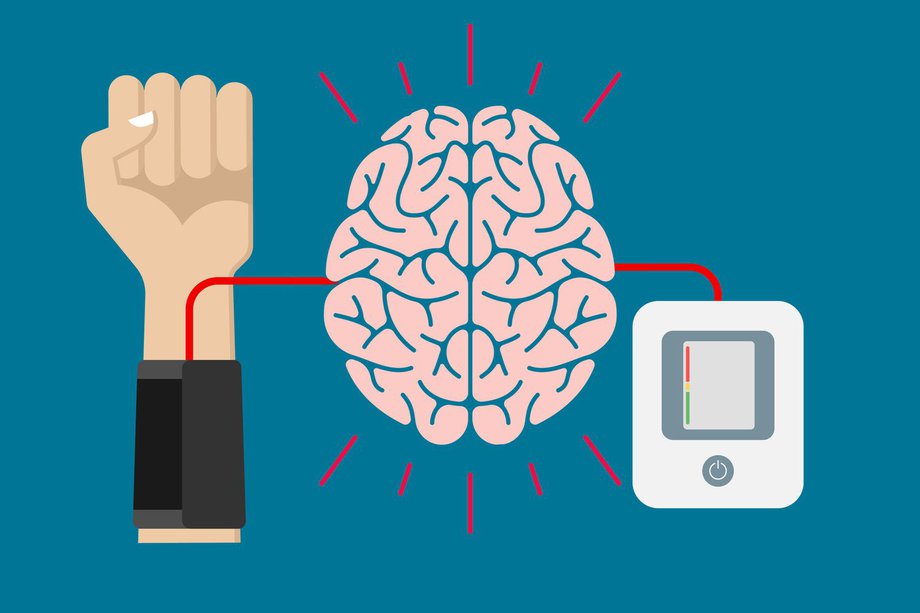What Are The Psychological Effects Of Living With Hypertension?

Hypertension, commonly known as high blood pressure, is a prevalent medical condition affecting a significant proportion of the global population. While the physical health consequences of hypertension are well-documented, there is a growing interest in understanding the psychological effects associated with this condition.
This article aims to explore the link between hypertension and mental health, specifically focusing on the impact of stress, anxiety, and depression. Additionally, coping strategies for managing the psychological effects of hypertension, the importance of seeking support and professional help, as well as lifestyle changes to improve mental well-being will be discussed.
Finally, the role of holistic approaches in addressing the psychological effects of hypertension will also be examined. By examining the psychological ramifications of living with hypertension, this article hopes to contribute to a better understanding of the comprehensive impact of this condition on individuals’ overall well-being.
Key Takeaways
- Regular physical exercise and a healthy diet can help manage hypertension and improve mental well-being.
- Stress management techniques like meditation, deep breathing, and mindfulness can help individuals cope with the psychological impact of hypertension.
- Engaging in self-care practices such as getting enough sleep, maintaining social connections, and participating in enjoyable activities can contribute to a positive mental state.
- Holistic approaches that recognize the mind-body connection and promote overall well-being can effectively address the psychological effects of hypertension.
Understanding the Link Between Hypertension and Mental Health
The relationship between hypertension and mental health is a topic of increasing interest and research, aiming to uncover the underlying mechanisms that may contribute to the psychological effects associated with living with hypertension.
Understanding the triggers that can exacerbate mental health symptoms in individuals with hypertension is crucial for developing effective interventions. Stress, for example, has been identified as a significant trigger, as it can lead to increased blood pressure levels and subsequent psychological distress.
Additionally, the role of medication in managing hypertension and its impact on mental health should be considered. Some antihypertensive medications have been associated with psychological side effects such as depression and anxiety, highlighting the importance of a comprehensive approach to managing both physical and mental health in individuals with hypertension.
Further research is needed to elucidate the complex interplay between hypertension and mental health and to develop targeted interventions to address the psychological effects of living with this condition.
The Impact of Stress on Hypertensive Individuals
Stress has a profound influence on individuals diagnosed with high blood pressure, significantly exacerbating their condition. To further understand the impact of stress on hypertensive individuals, consider the following points:
- Impact of work: High-stress work environments can contribute to the development and worsening of hypertension. The pressure to meet deadlines, long working hours, and limited control over job demands can lead to chronic stress, which in turn increases blood pressure levels.
- Impact of relationships: The quality of interpersonal relationships can also play a role in the psychological effects of hypertension. Conflict, lack of support, and poor communication within relationships can contribute to increased stress levels, further straining the cardiovascular system.
- Overall burden: The combination of work-related stress and strained relationships can create a cumulative burden on hypertensive individuals. This burden can lead to heightened anxiety, depression, and reduced overall well-being, further complicating the management of their condition.
Understanding the impact of stress on hypertensive individuals is crucial to developing effective interventions that address both the physiological and psychological aspects of the condition.
Exploring the Connection Between Hypertension and Anxiety
One significant connection to explore is the relationship between hypertension and anxiety, shedding light on the interplay between these two conditions. Research suggests that individuals with hypertension are more likely to experience anxiety symptoms compared to those without hypertension.
The exact nature of this relationship is complex and multifactorial. It is believed that chronic stress and the physiological changes associated with hypertension may contribute to the development of anxiety. Moreover, the fear of potential health complications and the need to manage a chronic condition can also increase anxiety levels in hypertensive individuals.
Exploring treatment options for anxiety in individuals with hypertension is crucial. While medication may play a role in managing anxiety symptoms, it should be used in conjunction with other non-pharmacological approaches, such as cognitive-behavioral therapy and lifestyle modifications.
Further research is needed to better understand the relationship between hypertension and anxiety and to optimize treatment strategies for individuals with both conditions.
The Relationship Between Hypertension and Depression
Research has shown a significant association between hypertension and depression, highlighting the need for further investigation into the complex relationship between these two conditions.
Studies have consistently found a higher prevalence of depression in individuals with hypertension compared to those without. The exact mechanisms underlying this relationship are not yet fully understood, but it is believed that both biological and psychosocial factors contribute to the development of depression in hypertensive individuals.
Furthermore, the impact of medication on mental health is an important consideration in this context. Some antihypertensive medications, such as beta-blockers and diuretics, have been associated with an increased risk of depressive symptoms. It is crucial for healthcare providers to carefully monitor the mental health of hypertensive patients, especially when prescribing medications that may potentially exacerbate depressive symptoms.
In conclusion, the relationship between hypertension and depression is well-established, with a higher prevalence of depression in hypertensive individuals. Further research is needed to better understand the underlying mechanisms and to develop effective interventions for managing both conditions simultaneously. Additionally, healthcare providers should be vigilant in assessing and addressing the impact of antihypertensive medications on mental health.
Coping Strategies for Managing Hypertension-Related Psychological Effects
Coping strategies play a crucial role in managing the psychological impact of hypertension. Individuals living with hypertension often experience a range of psychological effects, such as stress, anxiety, and frustration. To effectively deal with these emotions, various coping strategies can be employed.
- Cognitive therapy: This approach focuses on identifying and challenging negative thought patterns, helping individuals reframe their thoughts and develop healthier coping mechanisms. By addressing cognitive distortions related to hypertension, cognitive therapy can improve psychological well-being.
- Mindfulness techniques: Mindfulness involves being fully present and non-judgmentally aware of one’s thoughts, feelings, and sensations. Practices like meditation and deep breathing exercises can help individuals with hypertension manage stress and anxiety. Mindfulness techniques promote relaxation and enhance emotional resilience.
- Support groups: Connecting with others who are also dealing with hypertension can provide a sense of understanding and support. Support groups offer a space to share experiences, exchange coping strategies, and receive emotional validation.
By incorporating these coping strategies, individuals with hypertension can better manage the psychological effects of their condition, leading to improved overall well-being.
The Importance of Seeking Support and Professional Help
The significance of seeking support and professional assistance for individuals with hypertension cannot be overstated.
One beneficial option for those living with hypertension is joining a hypertension support group. These groups provide a supportive environment where individuals can share experiences, exchange coping strategies, and gain emotional support from others facing similar challenges. Being part of a support group can help individuals feel understood, reduce feelings of isolation, and provide a sense of belonging.
Additionally, therapy can play a crucial role in managing hypertension-related psychological effects. A therapist can provide a safe space for individuals to express their emotions, learn effective coping techniques, and develop strategies for managing stress. Therapy can also address underlying psychological issues that may contribute to hypertension, such as anxiety or depression.
Overall, seeking support and professional help can greatly enhance the well-being of individuals living with hypertension.
Lifestyle Changes to Improve Mental Well-being with Hypertension
Seeking support and professional help is crucial for individuals living with hypertension. However, it is equally important to implement lifestyle changes to improve mental well-being in conjunction with medical interventions.
Lifestyle modifications play a vital role in managing hypertension and can have positive psychological effects. Engaging in regular physical exercise has been shown to reduce stress levels and improve mood.
Adapting a healthy diet, low in sodium and saturated fats, can not only lower blood pressure but also enhance overall mental well-being.
Additionally, practicing stress management techniques such as deep breathing exercises, meditation, and mindfulness can help individuals cope with the psychological impact of hypertension.
Incorporating self-care practices like getting enough sleep, maintaining social connections, and engaging in enjoyable activities can further contribute to a positive mental state.
By implementing these lifestyle changes, individuals can effectively enhance their mental well-being while managing hypertension.
The Role of Holistic Approaches in Addressing Psychological Effects of Hypertension
Holistic approaches encompass various non-medical interventions that can effectively address the psychological impact of hypertension. These approaches recognize the interconnectedness of the mind and body and aim to promote overall well-being.
Some mind body techniques have shown promise in managing hypertension-related stress. Meditation, for instance, has been found to reduce anxiety and improve emotional well-being in individuals with hypertension. By practicing meditation regularly, individuals can enhance their ability to cope with the psychological effects of hypertension.
Other holistic approaches, such as relaxation techniques, biofeedback, and yoga, can also contribute to stress reduction and improved mental health. These techniques focus on promoting relaxation, mindfulness, and self-awareness, which can help individuals better manage the psychological burden of living with hypertension.
Overall, holistic approaches offer valuable tools for addressing the psychological effects of hypertension and improving overall quality of life.
Frequently Asked Questions
How does hypertension affect cognitive function and memory?
Hypertension is associated with cognitive decline and memory impairment. Studies have shown that increased blood pressure can lead to structural and functional changes in the brain, affecting cognitive processes and memory formation.
Can living with hypertension lead to personality changes or mood swings?
Living with hypertension can lead to personality changes and emotional instability. Research suggests that the chronic stress and physiological effects of hypertension can impact mood regulation and contribute to mood swings and alterations in personality traits.
What are the long-term psychological effects of untreated hypertension?
Untreated hypertension can have long-term stress effects and negatively impact mental health. It may contribute to the development of anxiety and depression, cognitive decline, and an increased risk of dementia.
Is there a connection between hypertension and sleep disorders or insomnia?
There is a connection between hypertension and sleep disorders, such as insomnia. Research suggests that hypertension can lead to poor sleep quality, which in turn can increase stress levels.
Are there any specific psychological effects of hypertension in younger individuals or children?
Hypertension can have specific psychological effects on younger individuals and children. It may negatively impact academic performance and social relationships, affecting their overall well-being and development.









